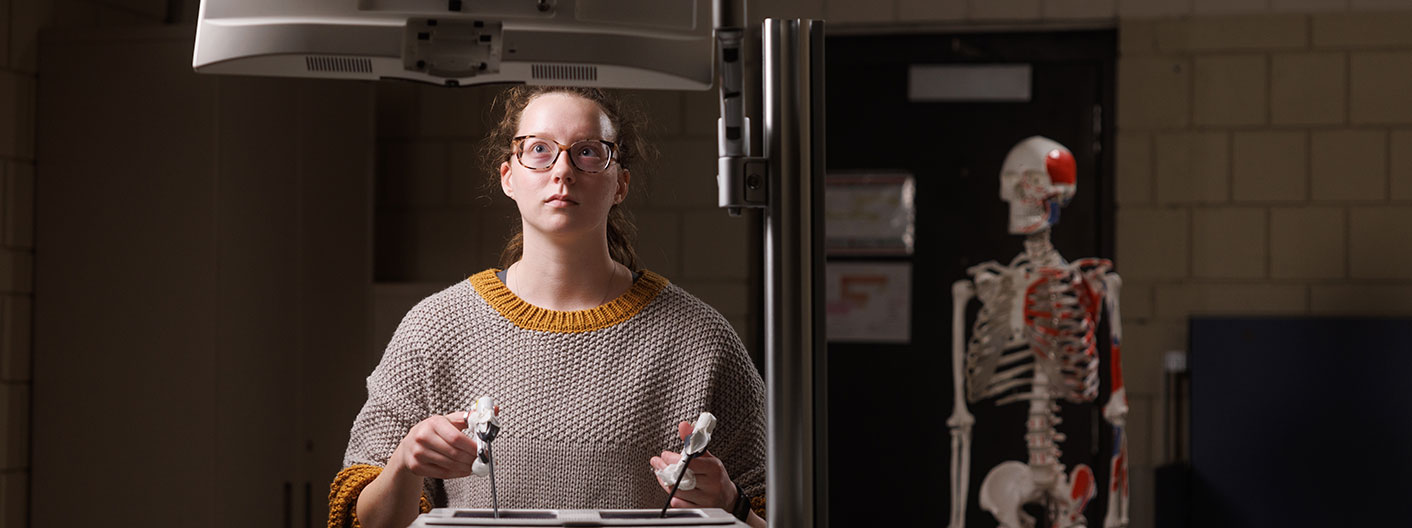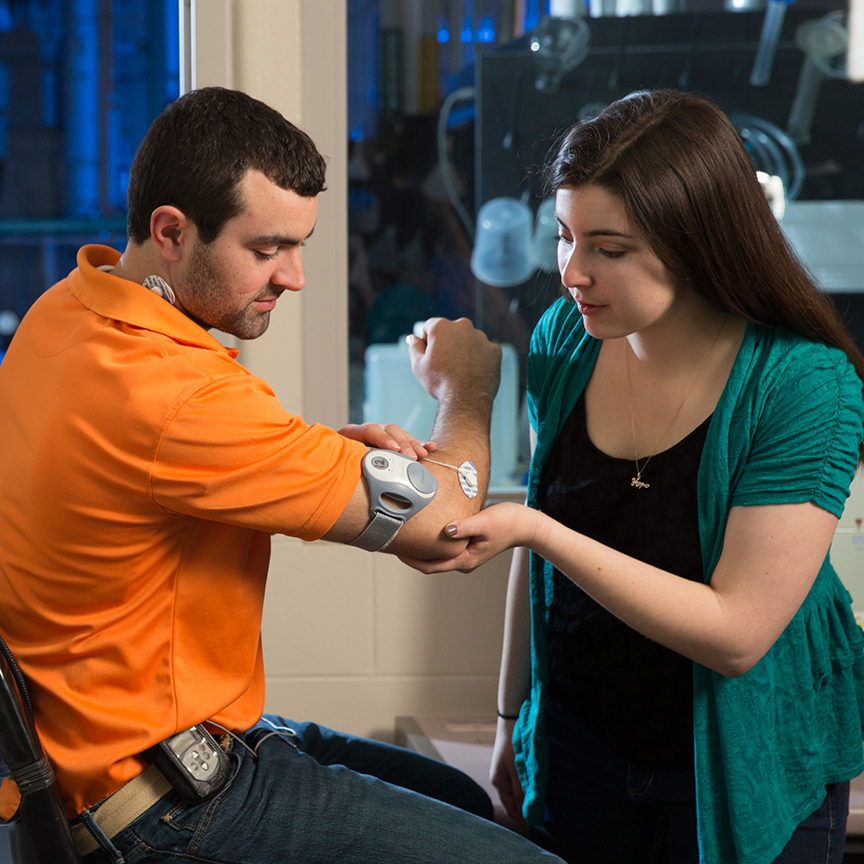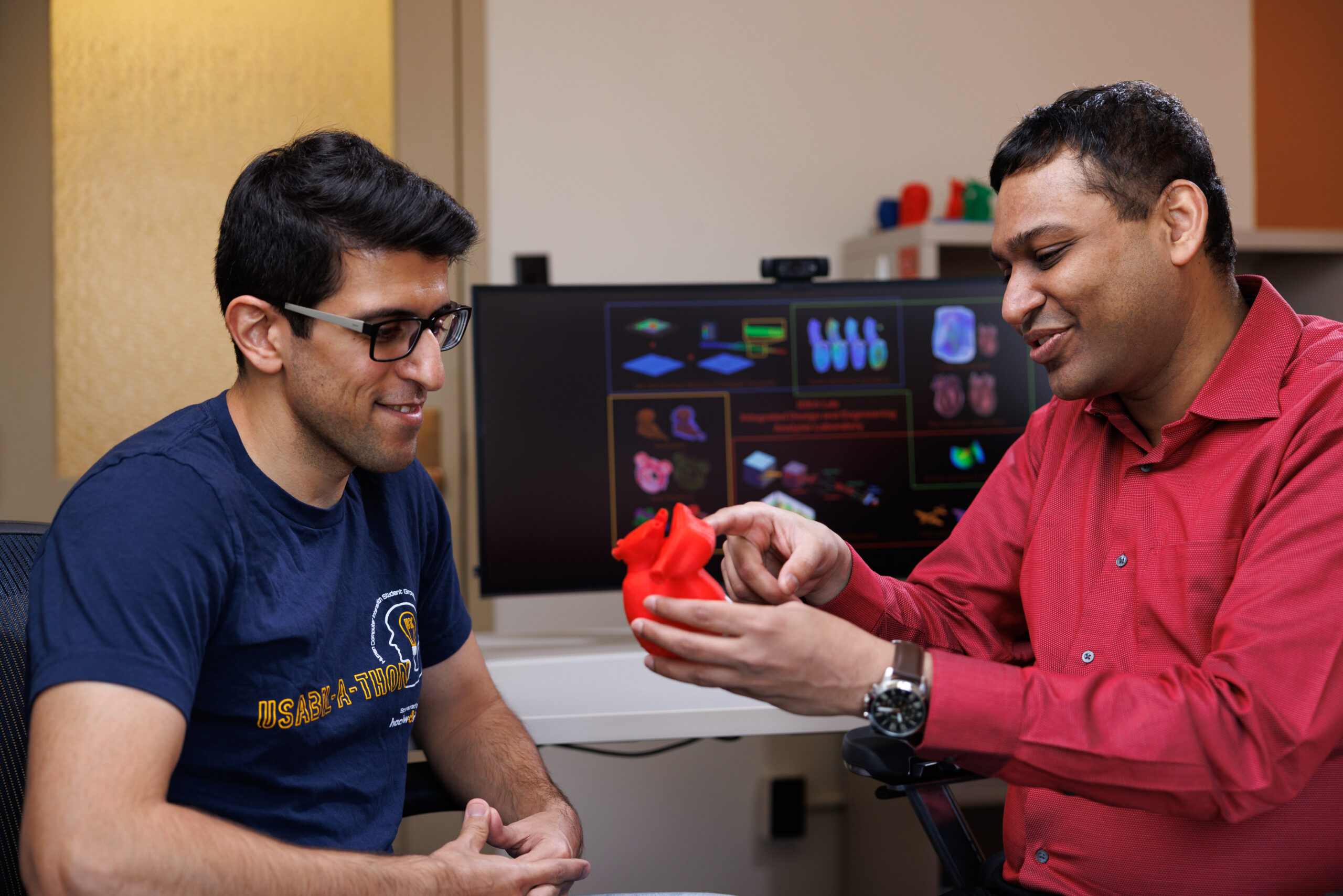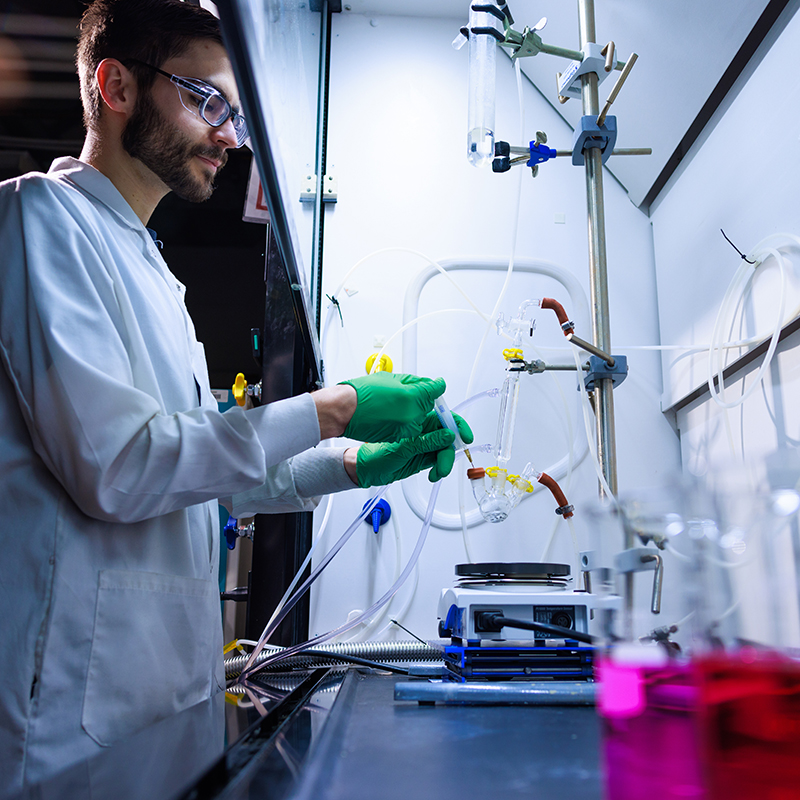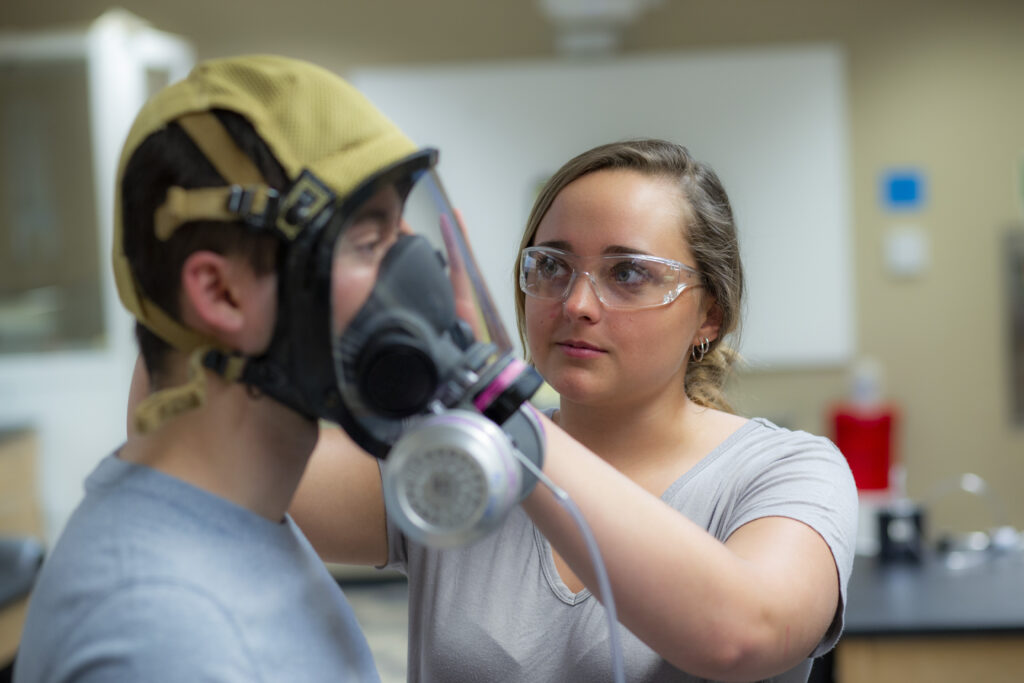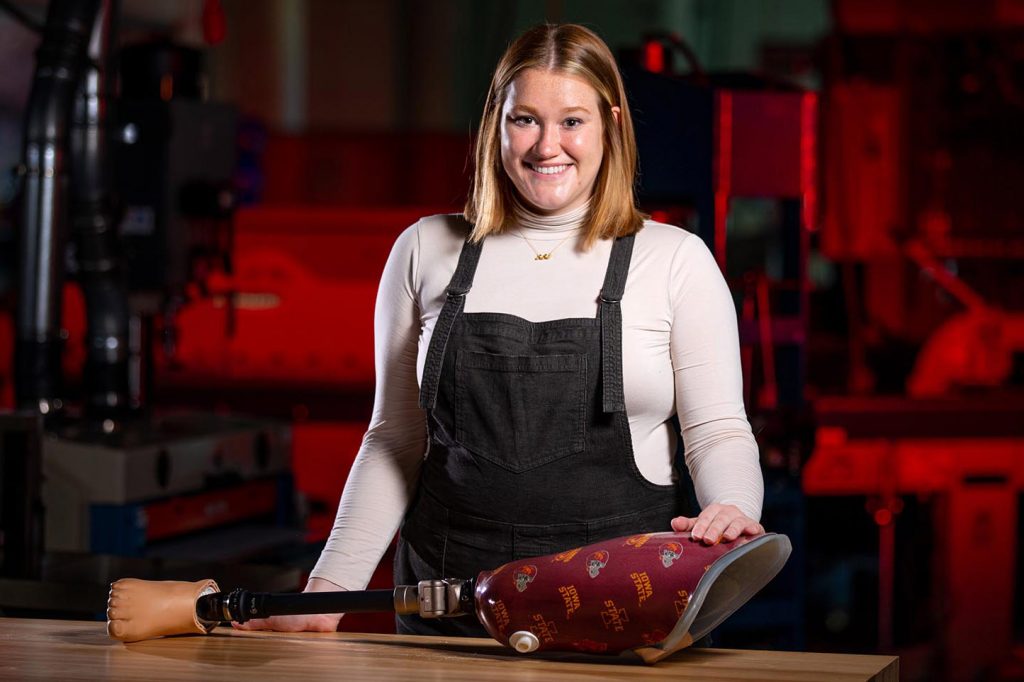Your Path In The Making
Biomedical engineers solve complex healthcare problems, so Iowa State biomedical engineering majors take hands-on classes and labs across the College of Engineering and across campus.
The Iowa State biomedical engineering curriculum is flexible, so you can work with your advisor and faculty mentor to put together a plan that matches your interests. Cyclone biomedical engineers will be ready to work in diverse, dynamic fields, from advanced diagnostics to prosthetic rehabilitation to biosensing – or to apply to medical or veterinary programs.
But no matter what you choose as your focus, you’ll get the chance to explore both human and animal health, working with leaders in health advancement in Iowa State’s College of Engineering, College of Veterinary Medicine, Nanovaccine Institute, Virtual Reality Application Center and more.

